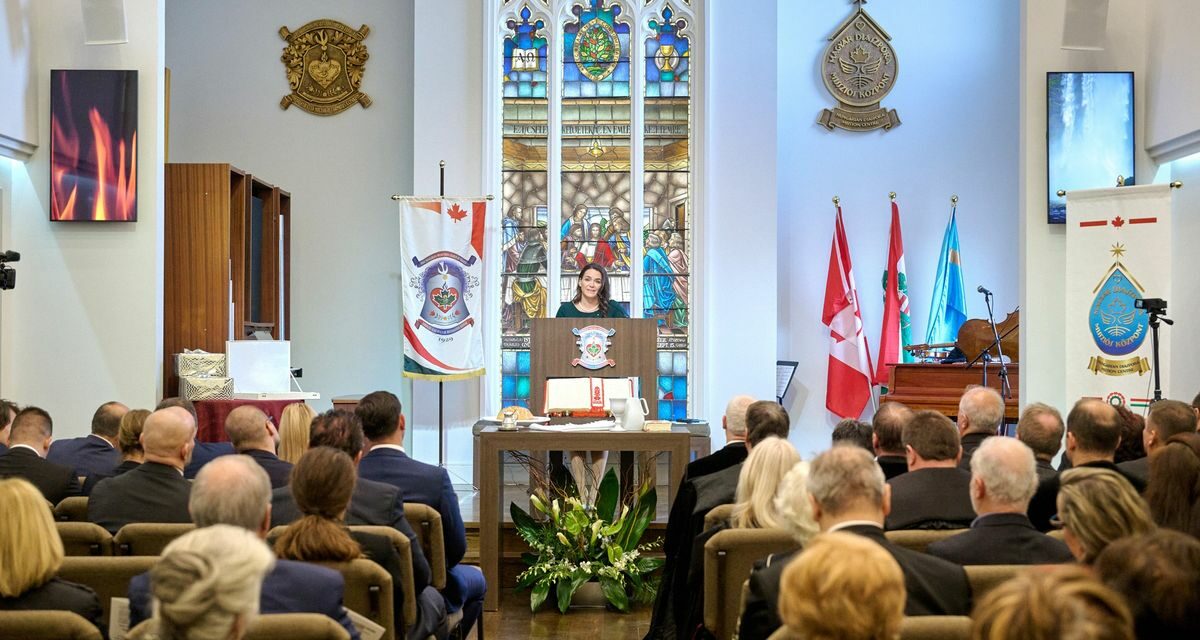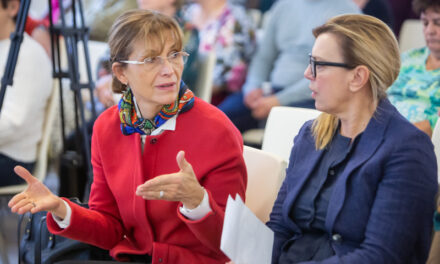The unity of the people living in the diaspora and the motherland is a responsibility for both sides - the President of the Republic emphasized on Sunday local time in Toronto, at the opening of the new church and community center of the First Hungarian Reformed Church in Toronto.
Katalin Novák compared the relationship between Hungarians living across the border and the motherland to an umbilical cord, which connects Hungarians living outside the border to the motherland in a "spiritual, spiritual and cultural" sense, which remains even if the community and the motherland are physically distant from each other. This kind of umbilical cord nourishes, gives life and "definitely connects us, in an unbreakable way", said the head of state.
He highlighted the Köldökzsinór program, which also exists in its name, the opportunity of which has already been used by the parents of more than 43,000 children born outside the border.
Katalin Novák emphasized that the solidarity between the diaspora communities and the mother country imposes a task on both sides.
He explained that the task for the motherland is, among other things, attention and responsibility, which is also stated in the Basic Law. At the same time, belonging also imposes responsibility on the communities living abroad, pointed out the President of the Republic, who
thanked the Canadian Hungarians for living there in a way that both the motherland and the state they live in can be proud of.
He classified it as the responsibility of the members of the Hungarian community in Canada to preserve their Hungarianness and language, an example of which is the recently opened Hungarian Diaspora Mission Center. Katalin Novák also mentioned that it is the duty of Hungarians abroad to feel responsible for the Hungarians of the Carpathian Basin. Those in need - either within Hungary or in the separated parts of the country - are waiting for help.
He noted that there are countless good examples of this, and emphasized that Canadian Hungarians rushed to the aid of Transcarpathian Hungarians after the outbreak of the war in Ukraine.
The reformed church connected to the diaspora center was consecrated by the reformed bishop Zoltán Balog, the pastor president of the synod of the Hungarian Reformed Church, on the eve of the Memorial Day of the Reformation. At the celebratory service, the church leader called the faithful's attention to the courage needed to start anew.
The congregation of the First Hungarian Reformed Church in Toronto moved out of its former church in January 2019 and was now able to take possession of the new church, which was located in the same building as the diaspora center, in which congregation halls and community rooms await the members of the congregation and the Hungarian community in Toronto.
Pastor Zoltán Vass pointed out in an interview with the public media after the dedication of the church: a lot of work and support was needed to complete the center and the church.
He added that they hope to create a small Hungarian island in the new location.
The establishment of the Hungarian Diaspora Mission Center and the church was supported by the Hungarian state, with the help of the National Policy State Secretariat of the Prime Minister's Office and Bethlen Gábor Alapkezelő Zrt.
Source: Hungarian Nation
Featured image: KEH/Facebook













